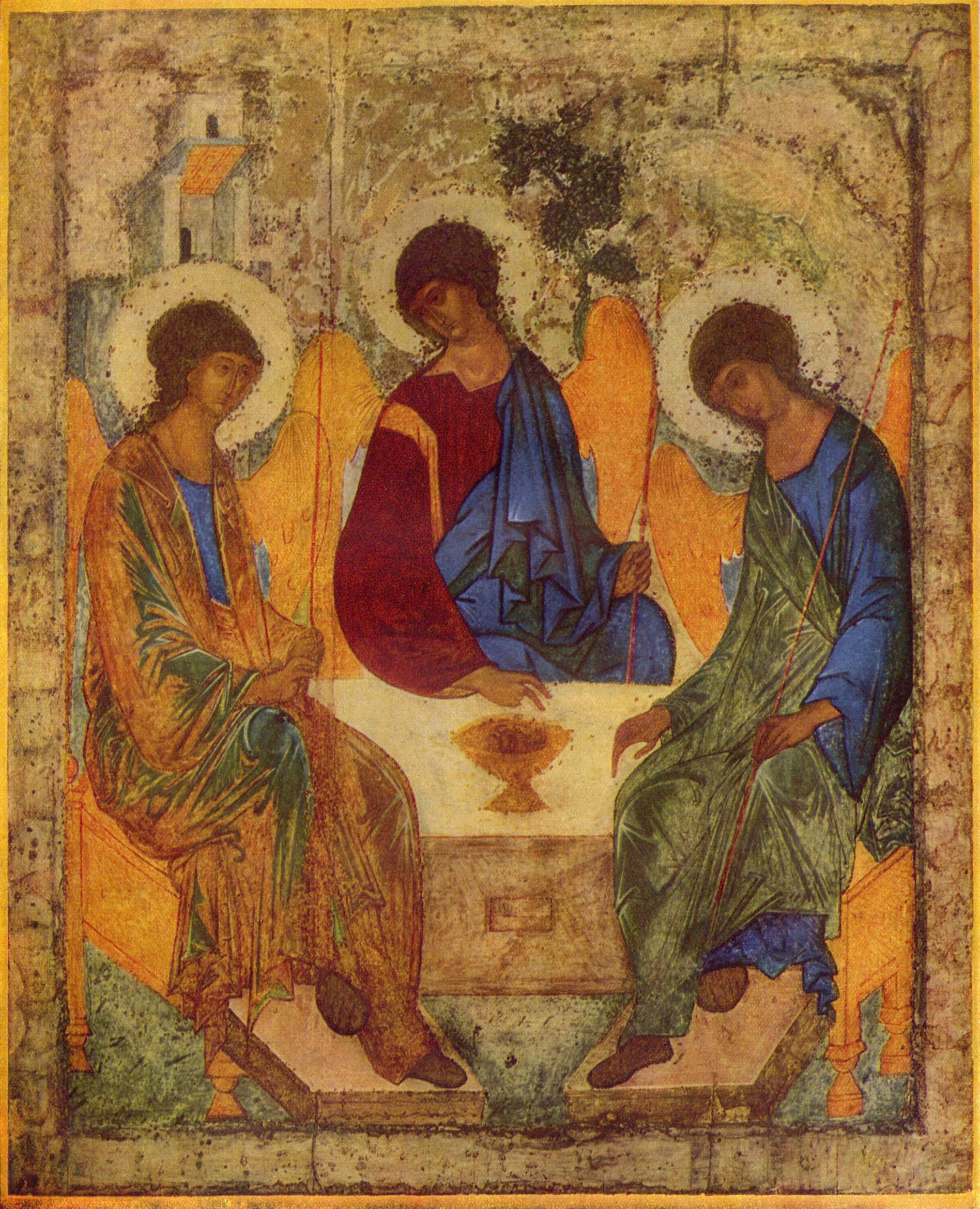 |
| Old Testament Trinity, by medieval Russian iconographer Andrey Rublev |
. . . But all ye gods,In "Milton’s Strange God: Theology and Narrative Form in Paradise Lost," Samuel Fallon notes that this idea of a bi- or tripartite God is in contrast with the prevalent Christian theology of Milton's time, which emphasized the Holy Trinity. Fallon remarks: "even at his most heretical, Milton could agree with nearly all Reformed thinkers when it came to God’s essential attributes," and stipulates various traits, including "oneness." Is this a valid assertion? Does Milton's portrayal of God really suggest a belief in the oneness of God? In what other ways are Milton's theological ideas less than orthodox or even "heretical"?
Adore him, who to compass all this dies,
Adore the Son, and honor him as me. (3:341-343)
Article Citation: Samuel Fallon. "Milton’s Strange God: Theology and Narrative Form in Paradise Lost." ELH 79.1 (2012): 33-57. Project MUSE. Web. 25 Sep. 2013.
I'm very pleased with how you focused on a specific issue, provided a relevant source, and quoted appropriately from that source. Just be sure that you give the full reference so that this source can be found.
ReplyDeleteI'd be interested to see more instances in non-LDS sources where God, Christ, and the Holy Ghost are represented as distinct persons. And in answer to your question, it sounds like Fallon was offering the same apologetics that we Latter-day Saints do for our belief in plural gods.
ReplyDelete